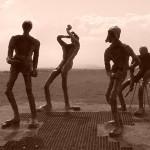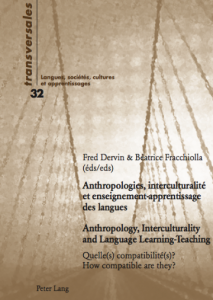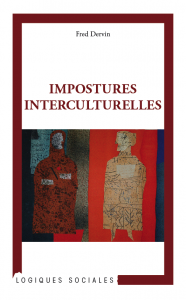Call for Papers:
Apples and Oranges: Practicing Comparison
Three day workshop, 13-15 September 2012, Goldsmiths, University of London
Deadline for abstracts: April 20th 2012

Qualitative social science has become uneasy about comparing: it is easily frightened by both accusations from within quantitative traditions that assert the inability of its methods to control variables precisely enough and a colonial past in which cultural comparisons had a dubious taint of racism. However, despite being a loaded term, comparisons are nonetheless routine within qualitative social science, although they are often more implicit than explicit. We perform them in conferences where we group in thematically similar panels, in more or less strident academic debates, as well as in our everyday practices as a way to understand and contextualise our own research. However, we observe that this seemingly comparative practice is rarely named as such. Further, we also suspect – while being
acutely aware of the problematic history of comparison as a social scientific activity, whether in the service of forms of reductive positivism or a hierarchy of cultures – that this history does not explain the degree of ongoing sensitivities about the value of naming certain research as comparative. More directly, we suggest that abstaining from explicit comparisons unnecessarily constrains qualitative research.
This conference seeks responses to this problematic. Questions we are interested in exploring include – but are not limited to – the following:
. Accounts of Comparative Practices: What are the difficulties of (collaborative) comparative projects? How do projects deal with cases
that refuse comparison, with fields that loose their comparative features and with theoretical concepts that fail to help to compare?
. Comparison policing: how is (non)comparative practice enacted and policed across academic life and in different disciplines?
. Strange comparisons: What is a ‘strange’ comparison? What is a ‘proper’ comparison?
. Incomparability/Failed comparisons: what are the limits to comparison? How are these limits performed? According to which modes of expertise?
. Comparison and value: Is comparison a technology of commensuration? What is lost? What is gained?
. Comparison and temporality: what kinds of comparisons are ‘restudies’? To what extent do comparisons across time equate to comparisons across space?
. Comparison, method and theory: how should theory inform comparative practice? At what point? Might experimental methodologies generate new registers for comparison?
. Beyond comparison: which other terms and frameworks can be used to describe the value of comparative practices? Which alternatives can be proposed to the strength and authority of certain ways of doing comparison in academic discourses and beyond?
We are keen to encourage interdisciplinary engagement around these questions, and welcome submissions from those working within anthropology, cultural studies, geography, Science and Technology Studies, sociology, and other related disciplines. We also encourage submissions that look at the practices of comparisons of actual, ongoing projects. This might be, for example, projects which struggle with making their objects comparable, or which test standard ideas about and objects of comparison, or collaborative projects dealing with the practice of comparison. Our focus in this event is less on theoretical or historical contributions and more on the way we perform comparisons in our everyday practice.
Abstracts of around 300-500 words should be sent to organising.disaster@gold.ac.uk by April 20th 2012.
Successful submissions, potentially drawing on participants’ own experiences, will be expected to circulate a short (1,000 – 3,000 words)
response to the problematics sketched above by August 31st . These will be circulated around conference participants in advance of the event, with the aim of stimulating richer, more productive dialogue. These need not be fully fleshed out academic papers, but can be looser responses to the problematic of comparison. We also invite contributors to suggest other formats as they prefer that either perform comparison or allow for specific insights into the issue of comparison.
There is a small amount of funding available for those without funding for travel and accommodation. Please indicate on your application if and how much funding you would need.
The conference is organised by the ERC-funded research projects “Organizing Disaster” (Michael Guggenheim, Zuzana Hrdlickova, Joe Deville) at the Department of Sociology/CSISP and “Gambling in Europe” (Rebecca Cassidy, Claire Loussouarn, Andrea Pisac) at the Department of Anthropology, both at the Goldsmiths, University of London.
Dr. Claire Loussouarn
Anthropology Department
Goldsmiths, University of London
gambling-in-europe.eu






